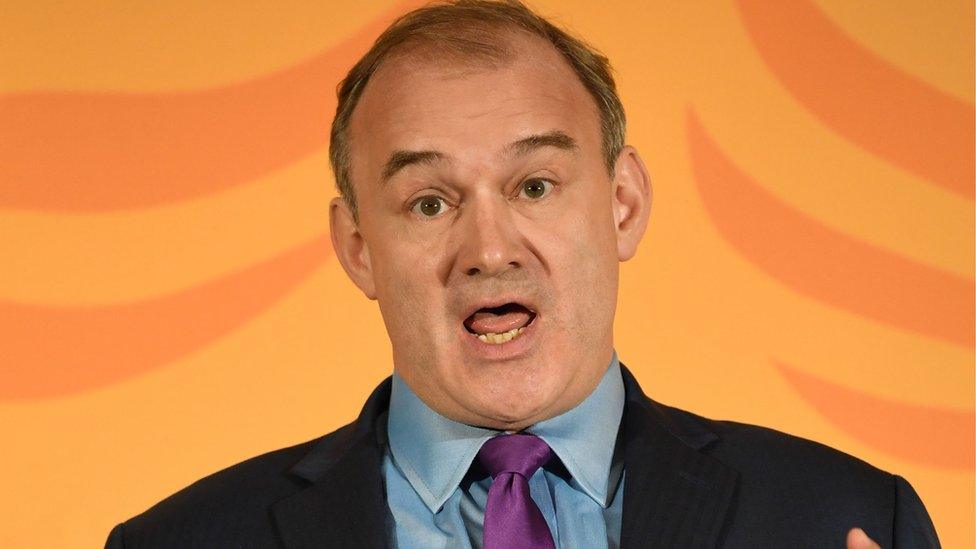The week ahead in Parliament
- Published
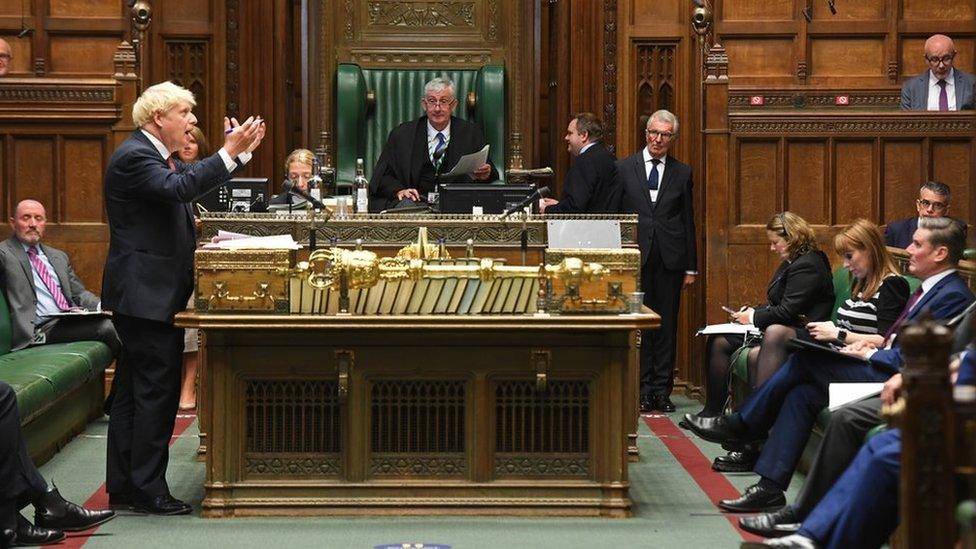
There's a sense of phoney war about Parliament at the moment in two different but interlocking ways.
First, huge decisions loom on the pandemic, Brexit and taxes, but the Commons and Lords are ticking over with a light legislative agenda - leaving room for opposition and Backbench Business Committee debates.
Second, the social distancing rules of the pandemic Parliament draw much of the sting from moments of crisis.
This was particularly evident on Tuesday, when Gavin Williamson delivered his statement on the emergency grading system for exams and the return to school.
In normal times, this would have been a brutal gladiatorial affair, with baying backbenchers and huge pressure on the minister - the sort of occasion which has made or broken careers.
This one, however, was a rather flat, low key anti-climax.
What's missing is the "mood of the House" - the moment where, in the cauldron of the Commons, both arguments and ministerial mettle are tested and a reaction crystallises.
One old hand told me recently he could think of three speeches this year that might, in normal times, have swung backbench opinion and shifted government policy - but in the pandemic parliament, they fizzled out.
Still, there are plenty of big arguments to be made and the thing to listen out for at Westminster next week will be the mood music - the overtures to those big decisions to come - with backbenchers finding opportunities to fire off warnings about tax increases or Brexit deals, lockdowns and returning to work, or China, Russia and climate change.
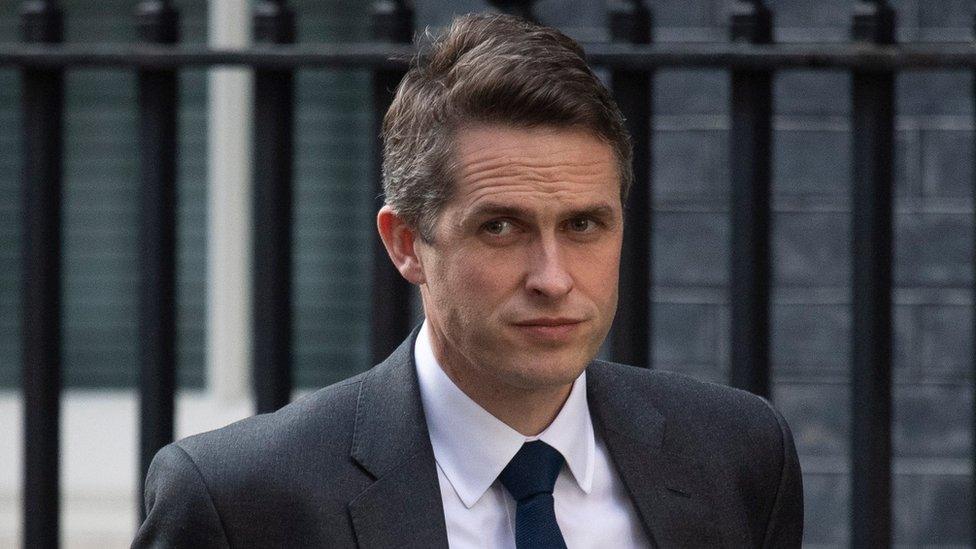
Education Secretary Gavin Williamson survived his appearance on the exams fiasco
Meanwhile, there are a few House points to note.
Backbench Business Committee debates resume on Thursday, after a long hiatus, and there is the prospect of Westminster Hall debates resuming in October.
I'm not sure whether there will be the opportunity for virtual participation by MPs who can't come in to Westminster, but the result will be more opportunities for MPs to sound off on issues of concern - with Thursday's two backbench debates, on the troubles of the aviation and tourism industries, just the start.
In the Lords, new arrivals from Boris Johnson's honours list begin to take their seats.
The atmospherics for this will be interesting, with many peers grumbling about the numbers and the individuals ennobled.
Here's my rundown of the week ahead...
Monday 7 September
The Commons week begins at 14:30 BST with an hour of education questions, which will probably be followed by the usual clutch of post-weekend ministerial statements and urgent questions.
The day's main legislative work is to complete consideration of the Fire Safety Bill. This is the post-Grenfell Tower measure to clarify the responsibility for such matters as cladding and safety measures in multi-occupied, residential buildings.
Its aim is to allow fire and rescue services to take enforcement action and hold building owners to account.
But Labour has concerns that the small print of the bill allocates too much of the cost of safety measures to leaseholders, rather than the freeholders.
The day's committee action includes Public Accounts at 13:45, returning to the issue of the tax gap - the gap between the amount of tax that should be collected and the amount that actually is, or to put it another way, big corporate tax avoidance.
They will be quizzing officials from the Treasury and HMRC.
The Joint Committee on Human Rights has a session on black people, racism and human rights at 14:30.
Meanwhile, in the Lords at 13:00, the Rt Rev Dr David Walker takes his seat as the Lord Bishop of Manchester.
He promises to be an interesting addition to the Bishops' Bench, where he will presumably be the only member of the Lords who shuns socks as a committed wearer of sandals (without socks) in all weathers and all environments.
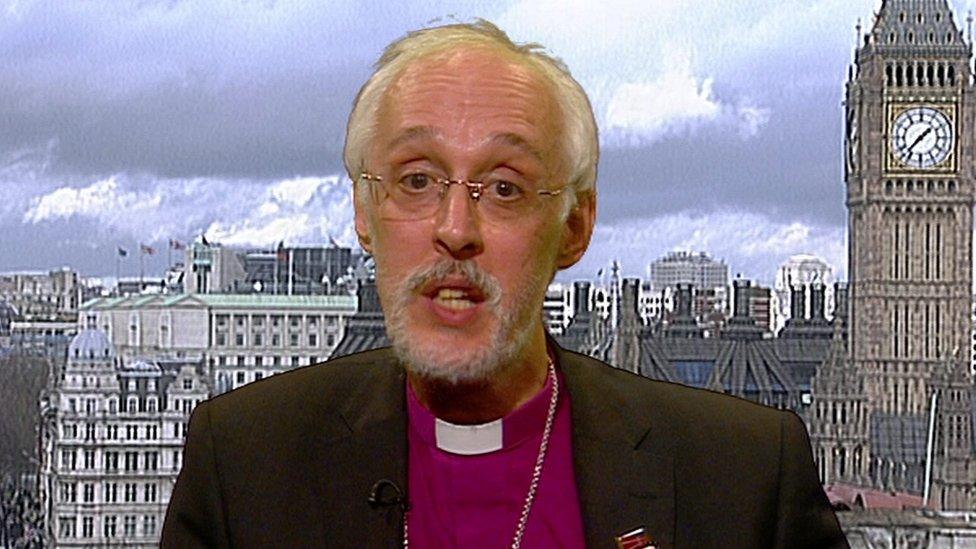
Bishop David Walker is not afraid to speak his mind - or wear sandals
He also took the nativity story to the streets of Manchester in December 2013 by riding a camel, though I understand he'll be taking more conventional transport to his introduction.
The new entry is often considered one of the more vocal bishops on issues of public policy, and his areas of interest in the Lords are expected to be housing, welfare and poverty, and ethical investment.
Ministers will face questions on ensuring small and medium-sized enterprises are awarded public procurement contacts and on new highways near sites of ecological, cultural or scientific significance.
There will also be questions on finalising a digital evidence policy for access to complainants' and witnesses' mobile phones, particularly in relation to cases of alleged rape and sexual assault, and the review into the Post Office Horizon scandal - another question from the Conservative Lord Arbuthnot, who has long campaigned on this issue.
Then peers move on to the first of three days of Committee Stage scrutiny of the Immigration and Social Security Co-ordination (EU Withdrawal) Bill - which ends free movement, repeals other retained EU law relating to immigration and will confer power to modify retained direct EU legislation relating to social security co-ordination.
In Grand Committee, peers debate a series of reports on the way Parliament processes international treaties, with the anticipated wave of post-Brexit report trade treaties very much in mind.
All very techy - but the process could turn out to be very important, as new treaties are put before MPs and Peers for approval.
Tuesday 8 September
The Commons opens at 11:30 with Foreign, Commonwealth and Development Office Questions - the first since the Department of International Development was absorbed by the Foreign Office.
It is a fair bet that the talk of cutting the UK's international development budget will come up
The day's Ten Minute Rule Bill, from Labour's Yvonne Fovargue, is the White Goods (Registration) Bill, which would require retailers to register white goods - such as washing machines, fridges etc - at the point of sale.
The aim is to help with product recall, so that faulty - and possibly dangerous - products can be dealt with, and to take the onus off the consumer by establishing a central register.
Then MPs polish off the Extradition (Provisional Arrest) Bill, which allows police to arrest someone identified as an international fugitive - for example, the subject of an Interpol alert - rather than having to release them, seek a warrant and try to find them again.
This power already exists for people wanted by EU member states.
The adjournment debate, led by Conservative former Cabinet Minister Theresa Villiers, is on the inclusion of black history in the history curriculum.
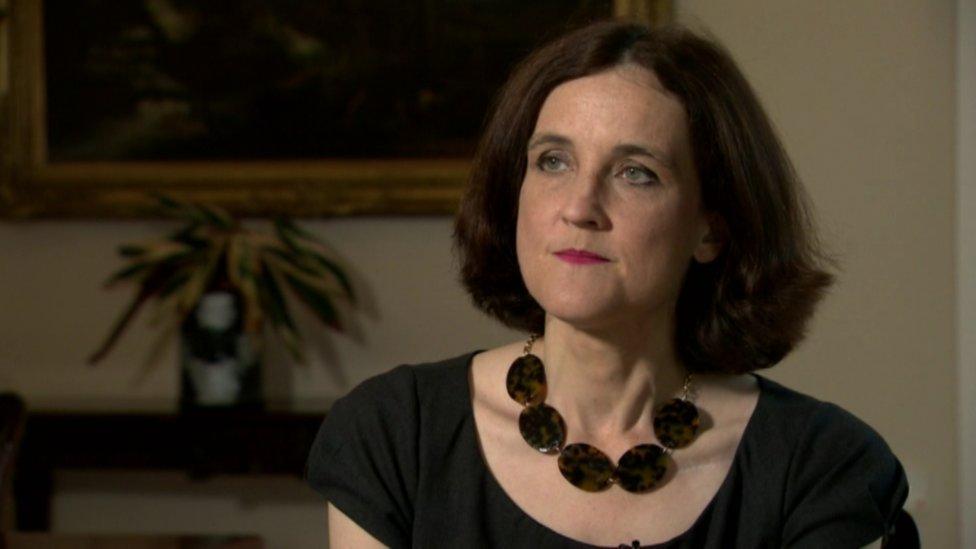
Theresa Villiers will lead Tuesday's adjournment debate
On the committee corridor, composer and producer Andrew Lloyd Webber is the star witness in the Digital, Culture, Media and Sport evidence session at 09.30.
He will speak about the challenges to the return of live audiences to performance venues while meeting the government's social distancing requirements.
Evidence from the sector suggests that venue capacities will be far below the level required to break even, when audiences and sports fans are required to maintain social distancing.
Lloyd Webber has urged the government to announce a target date for venues to reopen without social distancing, but the Culture Secretary, Oliver Dowden, has estimated November would be the earliest date possible.
At 10:00, the Health and Social Care Committee rounds off its inquiry into the funding of social care and its workforce, which aims to establish how much extra money the government needs to allocate to social care if pressures on the NHS are to be reduced.
First they will quiz James Bullion, vice president of the Association of Directors of Adult Social Services, and Sarah Pickup, the deputy chief executive at the Local Government Association.
Then, at 11:00, Health Secretary Matt Hancock will appear.
Elsewhere, the Defence Committee takes evidence at 14:00 on defence industrial policy from industry and trades union witnesses, while the Foreign Affairs Committee examines the FCO's role in blocking foreign asset stripping in the UK at 14:30.
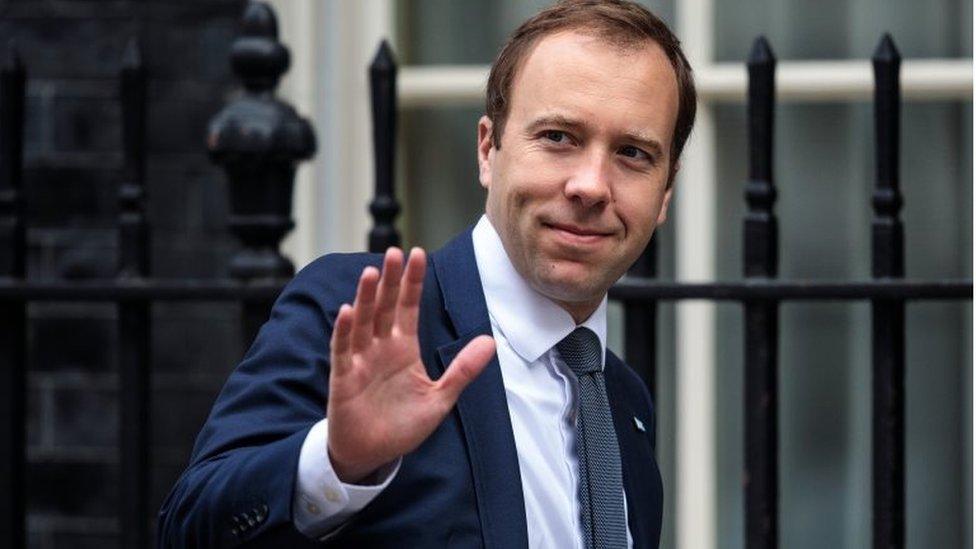
Matt Hancock will appear on the committee corridor this week
The Lords' day begins at 12:00 with the introductions of two new peers - the Brexit chief negotiator David Frost, and the former Home Office minister Nick Herbert.
Questions to ministers range from delivering the government's levelling up agenda in the wake of the COVID-19 and the number of new homes needed by 2025 to deliver the 300,000 new homes per year target, to the UCAS End of Cycle Report 2019 findings on low entry rate for white students from state schools.
Then peers rattle through the Third Readings of two bills - the Sentencing Bill which consolidates existing sentencing legislation in England and Wales into a new sentencing code, and the Prisoners (Disclosure of Information About Victims) Bill - or Helen's Law, named after Helen McCourt, whose killer, Ian Simms, was freed from jail without disclosing the location of her remains.
It has taken three years, two general elections and two prime ministers to get the law through, and it will bring in a new requirement for the Parole Board to consider the non-disclosure of information about a victim's remains when considering the release of a prisoner.
It is not a "no body, no parole" bill, but it makes clear to Parole Board panels a refusal to give information that can ease a relative's pain, such as non-disclosure of remains, should weigh on their decision-making.
That is followed by the Second Reading of the Trade Bill, which sets out a new framework for rolling forward existing trade arrangements and for reaching post-Brexit trade deals with other countries.
What it doesn't do is set out specific trade arrangements - the bill is about how they're processed when agreed.
The previous incarnation of this bill was heavily amended, before being paused by Theresa May's government, and then lost at the 2019 general election.
But some of the debates from that era may be re-fought in the Lords, including over the requirements for future parliamentary scrutiny of trade deals.
In Grand Committee at 14:30, peers begin detailed scrutiny of the Parliamentary Constituencies Bill - the measure to equalise the electorates in Commons seats.
Votes are seldom held at Committee Stage in the Lords, and never in Grand Committee, so any clashes over the detail of the bill will be fought out later, at Report Stage.
The Lords Public Services Committee will also take place at 09:00, taking evidence from Tiawanese minister Audrey Tang on their handling of the pandemic, and the Lords special Covid-19 Committee starts at 10:00 with an evidence session on life beyond the virus.
Wednesday 9 September
The Commons day begins at 11:30 with half an hour of Scotland questions, followed by Prime Minister's Question Time
The day's Ten Minute Rule Bill, from "Red Wall" Conservative Ian Levy, would increase the penalties for a breach of the licensing conditions for houses with multiple occupants.
The main debates are on two Labour Opposition Day motions - first, on the protection of jobs and businesses, then on the personal role and involvement of the prime minister and education secretary in this summer's exams fiasco.
On the committee corridor at 09:30, the Committee on the Future Relationship with the European Union hears from witnesses from the Road Haulage Association and the Customs Clearance Consortium.
Following its fascinating session on the Troubles with the key investigator of some of the most contentious crimes, the Northern Ireland Affairs Committee continues its look at the UK government's new proposals to deal with the legacy, with former Secretary of State Lord Hain and Ulster Unionist Lord Empey.
The Transport Committee hears evidence on the implications of coronavirus at 09:30 from transport union the RMT and transport ministers Kelly Tolhurst and Rachel Maclean
And the Treasury Committee takes evidence at 14:30 on the decarbonisation of the UK economy and green finance
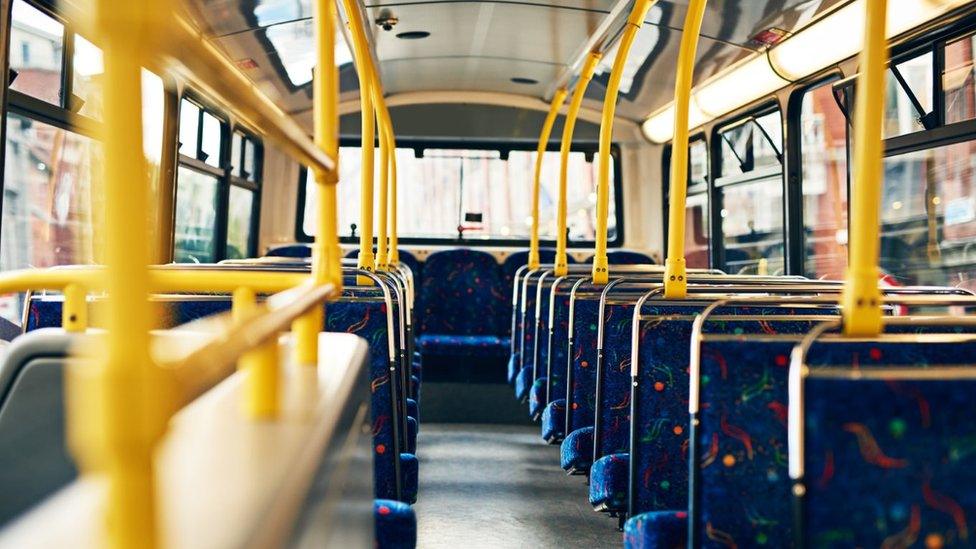
Public transport and the pandemic will be up for discussion
In the Lords from 12:00, ministers face questions on the benefits and risks of AI in recovering from Covid-19, the steps taken by Office for Veterans' Affairs to support veterans and the future of Britain's railways.
After that, peers have their second day of Committee Stage scrutiny of the Immigration and Social Security Co-ordination (EU Withdrawal) Bill - as ever, Committee Stage proceedings are exploratory, and serious attempts to rewrite the Bill won't begin until the later Report Stage.
In Grand Committee from 14:30, peers debate the report from the Science and Technology Committee, "science research funding in universities".
Thursday 10 September
Commons business opens at 09:30 with 40 minutes of questions to the Department of Environment, Food and Rural Affairs.
This will be followed by a mini-question time for the MPs who speak on behalf of the Church Commissioners, the House of Commons Commission (which now covers the Parliamentary Works Sponsor Body - the quango in charge of the restoration of the building), the Public Accounts Commission and the Speaker's Committee on the Electoral Commission.
Then comes the weekly Business Statement, announcing the future agenda for the House, and Business Questions to the Leader of the Commons, Jacob Rees-Mogg.
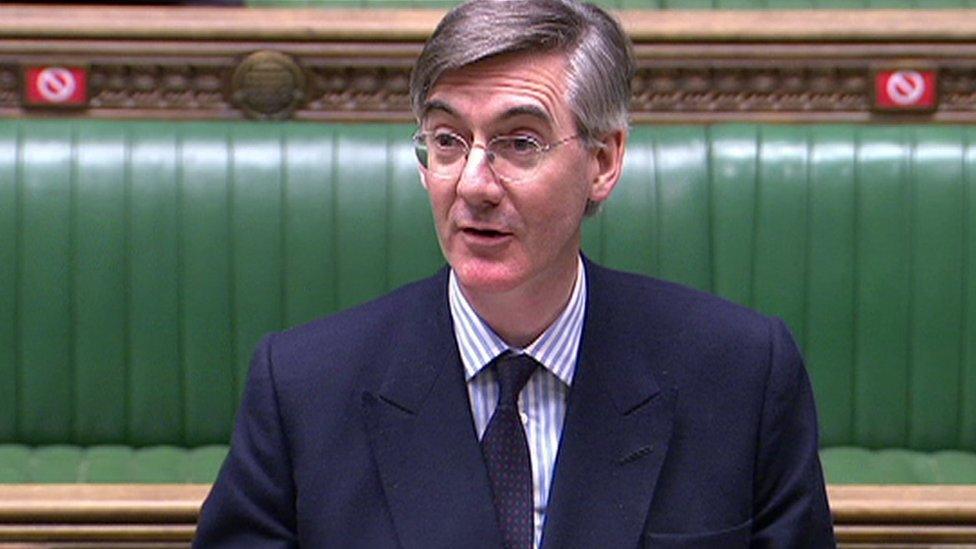
Jacob Rees-Mogg will make his weekly appearance at the dispatch box
After that, it's the return of Backbench Business Committee debates, with two general debates on the aviation sector and on support for the tourism industry after the lockdown.
The day's committee action includes Public Accounts at 09:30 recalling witnesses from the Home Office, including Permanent Secretary Matthew Rycroft, to discuss their handling of the Windrush scandal.
The Public Administration and Constitutional Affairs Committee quizzes the Duchy of Lancaster, Michael Gove, at 14:00 on the work of the Cabinet Office.
In the Lords at 12:00, former DCMS Minister, Ed Vaizey, and former Northern Powerhouse Minister, James Wharton, are introduced as peers.
Question time covers the continuity of military operations and support during the pandemic, gambling legislation, and support of the music industry - particularly the self-employed and sole traders.
Then peers debate (some time after the event) the Health Protection (Coronavirus, Restrictions) (Leicester) (Amendment) Regulations 2020 - the legal underpinning of the Leicester lockdown.
In Grand Committee at 14:30, it's day two of Committee Stage consideration of the Parliamentary Constituencies Bill.
Friday 11 September
Private Members' Bills are back, and at 09:30 MPs sit with a long list of bills on the Order Paper - most of which will not be debated and will then end up in legislative limbo.
It is rare for more than three or four bills to be debated on a single Friday, which means measures like the new Lib Dem leader, Sir Ed Davey's Coronavirus Inquiry Bill - which lurks at the end of the agenda - have no chance of getting a Second Reading.
The get-out clause, as aficionados of this process will know, is that, on rare occasions, a bill can be given a formal Second Reading if no-one shouts "object" as its title is read out at the close of the day.
This is a kind of magic pole vault which can allow favoured bills to jump the normal Second Reading debate and go straight into committee stage scrutiny.
But it is very rarely used, not least because the Private Members Bill awkward squad of Tory backbenchers dislike it, as a matter of principle.
First up is the Second Reading of the Co-operative and Community Benefit Societies (Environmentally Sustainable Investment) Bill, proposed by Labour's Anna McMorrin, who placed third in the annual ballot awards MPs some priority for debate for the measure of their choice.
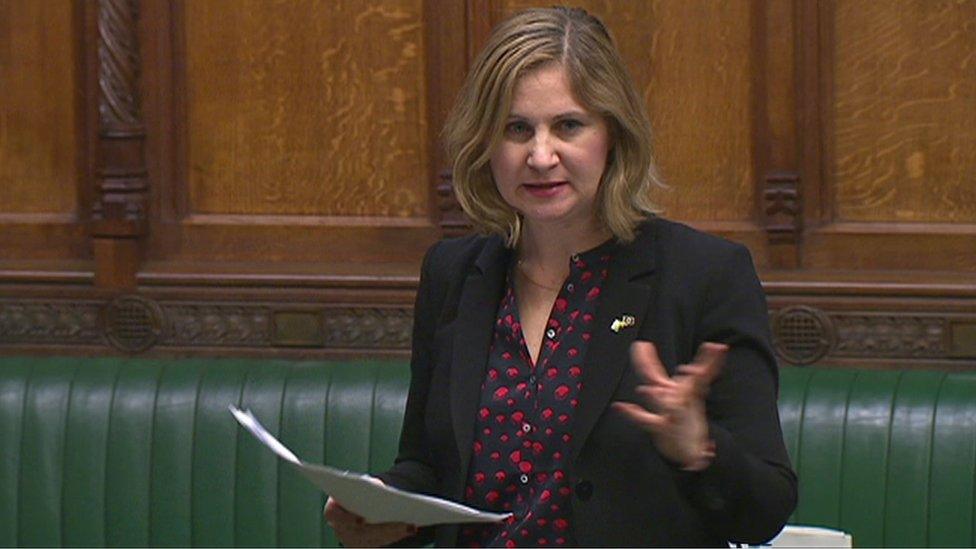
Labour's Anna McMorrin was top of the ballot
Her bill is designed change the rules under which cooperatives and community associations operate to make it easier for them to create green jobs and skills.
In permitting environmentally sustainable investment, the bill would see the expansion of much-needed renewable energy or housing projects.
And Ms McMorrin hopes the result would be cheaper, greener energy, warmer, more energy efficient homes, and cheaper, more sustainable locally-sourced food.
Second up is the Unpaid Work Experience (Prohibition) (No. 2) Bill from Labour's Alex Cunningham.
This does what it says on the tin, and the "No 2" indicates that there is an identical bill before the House of Lords, which could speed things up if the bill clears the Commons.
Below that are a number of presentation bills from Friday frequent flyer Peter Bone, who won some minimal priority for debate by camping out overnight in the Public Bills Office to be first in the queue after the MPs who had won places in the annual ballot.
In practice, this gives him the opportunity to place his bills strategically on days when he thinks they might get a chance of some debate towards the end of the day, and so get a chance to raise some of his issues for a few minutes.
These include the Hospitals (Parking Charges and Business Rates) Bill and the Parliamentary Constituencies (Amendment) Bill.
Then come all manner of presentation bills and Ten Minute Rule bills, with Sir Ed's bringing up the rear.
- Published31 July 2020
- Published26 August 2020
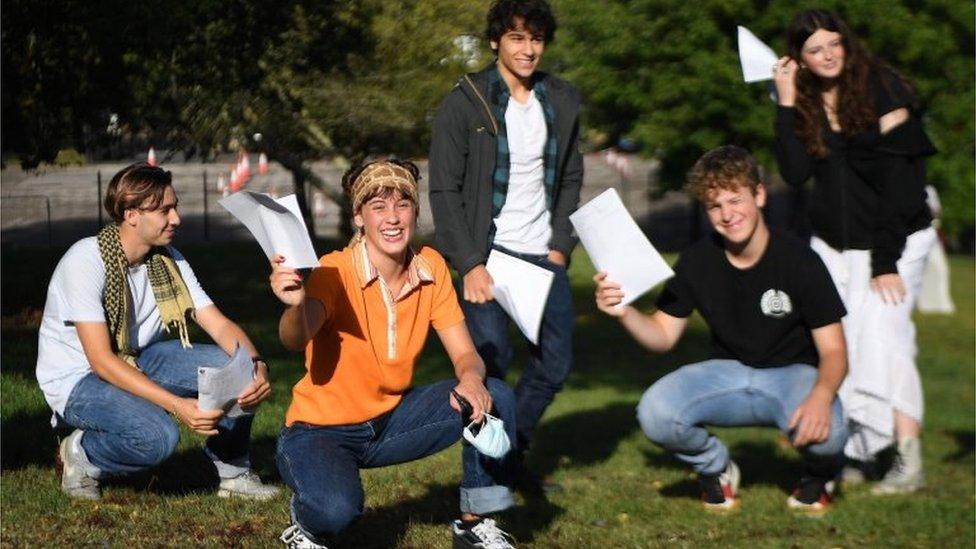
- Published27 August 2020
